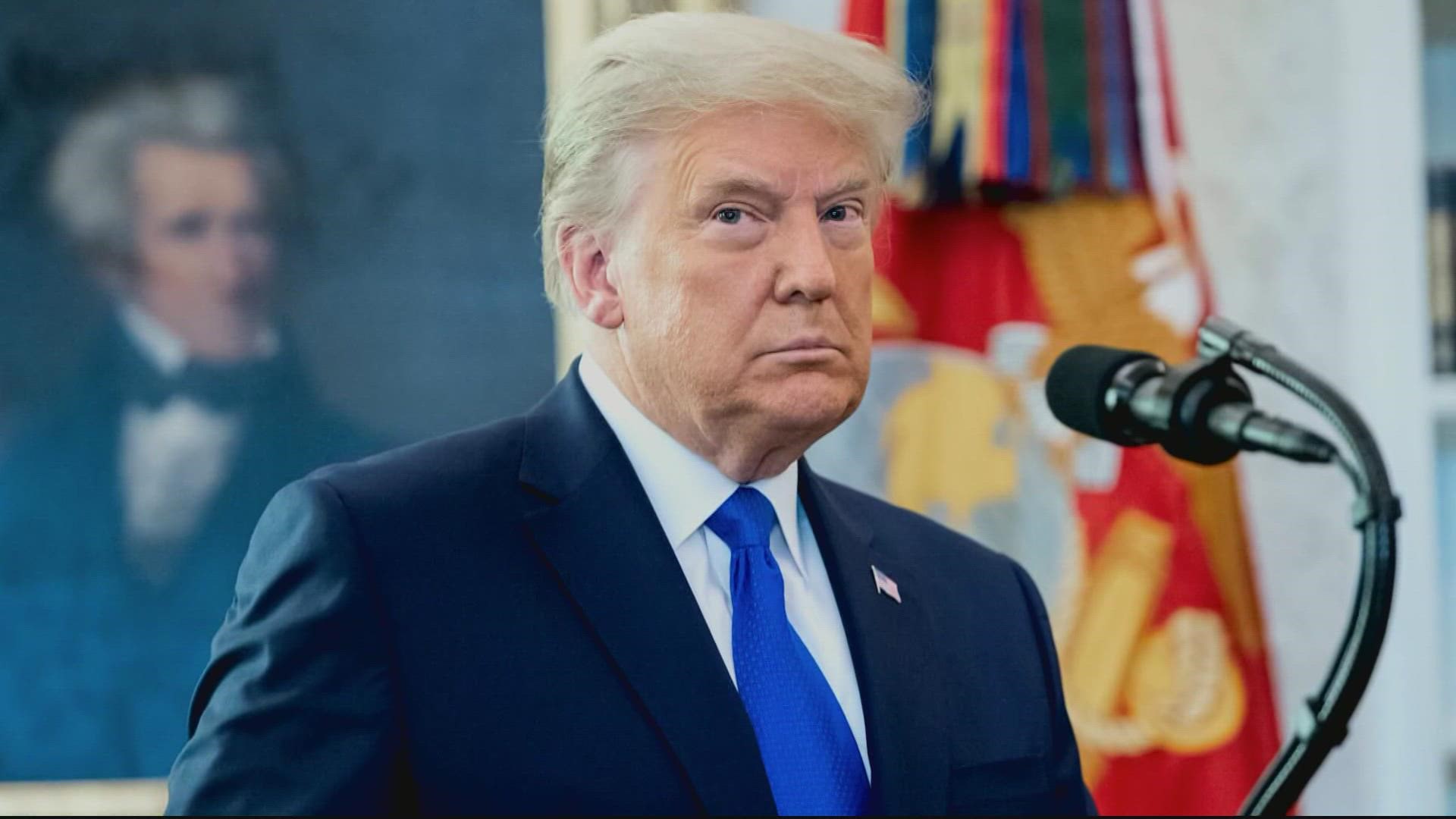WASHINGTON — Former President Donald Trump asked a judge on Monday put on hold a wrongful death suit accusing him of contributing to the death of U.S. Capitol Police Officer Brian Sicknick – saying the recently unsealed criminal indictment against him should take precedence.
A federal grand jury indicted Trump earlier this month on four felony counts accusing him of conspiring to defraud the United States and obstruct the joint session of Congress on Jan. 6. The indictment is the latest addition to Trump’s mounting legal woes, which also include dozens of charges alleging he intentionally retained national security documents after leaving office, but the first time he has faced potential criminal liability for the Jan. 6 attack on the U.S. Capitol.
That case, his attorneys argued in a motion for stay Monday, should be resolved first before a wrongful death suit filed against him in January alleging he contributed to Sicknick’s death.
“Absent a stay, President Trump will be placed in the untenable position of fully litigating this case and risking his criminal defense, or pleading the Fifth Amendment and hampering his chance of success in this case,” Trump attorneys Jesse Binnall and David Warrington wrote in the motion. “Such a dilemma should especially be avoided when it involves a former President of the United States and current frontrunner, presidential candidate for the Republican Party in 2024.”
The D.C. Office of the Chief Medical Examiner determined in April 2021 that Sicknick, a 42-year-old Capitol Police officer and former staff sergeant with the New Jersey Air National Guard, had died of natural causes after suffering two strokes, although in an interview with the Washington Post Chief Medical Examiner Francisco Diaz said the events of Jan. 6 “played a role in his condition.”
In January, Sandra Garza, Sicknick’s long-time partner, filed a $10 million wrongful death suit against Trump and two other men, George Tanios and Julian Khater. Khater was sentenced that same month to more than six years in prison for assaulting both Sicknick and another officer, USCP Officer Caroline Edwards, with pepper spray. Tanios, who purchased the pepper spray, was sentenced to five months in prison on two misdemeanor counts.
The lawsuit, filed on Garza’s behalf by attorneys Matthew Kaiser, Philip Andonian and Mark Zaid, accuses Trump of knowingly lying to his followers about unfounded claims of election fraud and calling them to D.C. on Jan. 6.
“Some, including Defendants Khater and Tanios, planned violence at the U.S. Capitol in advance; some were stirred to violence by Defendant Trump’s words on that day,” the lawsuit reads.
Working in Trump’s favor is that criminal cases typically take precedence over civil matters, although some elements may be able to proceed even while the civil case as a whole awaits resolution in the criminal case. On Twitter Monday afternoon, Garza’s attorney Zaid promised to fight Trump’s motion, writing, “We will be opposing this obvious delay tactic.”
U.S. District Judge Amit P. Mehta, a 2014 nominee of former President Barack Obama who is overseeing the case, is also considering motions from Trump, Tanios and Khater to dismiss Garza’s suit outright. In a filing earlier this month, David Sheldon, representing Khater, argued Garza was relying entirely on the former president’s tweets to establish a nexus between the other two men, who never met with or spoke to Trump. As of Monday, no future hearing date was scheduled in the case.
Trump’s attorneys were next scheduled to be in court in his election fraud case on Aug. 28. On Friday, a different federal judge, U.S. District Judge Tanya S. Chutkan, imposed a protective order allowing Trump to release some evidence in that case publicly but restricting his ability to talk about potential witnesses.
Federal prosecutors have proposed a Jan. 2, 2024, trial date in Trump's election fraud case — although that date seemed unlikely to hold given the vast amount of evidence in the investigation and its proximity to the Iowa Republican Caucus.

